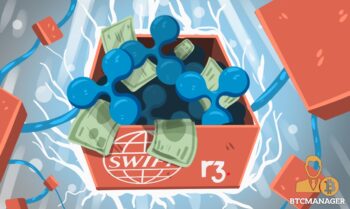2021-11-17 11:00 |
Ripple (XRP) recently released its framework for approaching cryptocurrency regulation in the US, outlining several recommendations for Washington policymakers.
In a bid to limit the US Securities and Exchange Commission’s (SEC) ‘tyranny,’ the blockchain company proposed a bigger role for Commodity Futures Trading Commission (CFTC) and public-private collaboration.
Ripple is tied in a lawsuit filed last December by the SEC, alleging that the company’s sale of XRP was an unregistered security offering worth more than $1,38 billion.
More industry collaboration and crypto innovation sandboxesThe company proactively broke down its concept for cryptocurrency and digital asset regulation in a series of “immediate and pragmatic” tweaks, starting with placing the public-private collaboration at the center of legislative proposals.
https://twitter.com/Ripple/status/1460609101952479235
“Fostering this type of open dialogue is precisely the aim of the Eliminate Barriers to Innovation Act,” noted Ripple, while putting an emphasis on the open dialogue with industry insiders.
“The bill — which requires the establishment of a collaborative working group consisting of appointees from the Securities and Exchange Commission (SEC) and the Commodity Futures Trading Commission (CFTC) as well as representatives from fintech companies, financial firms, and small businesses — passed the House and remains pending in the Senate,” reminded the company.
Stuart Alderoty, Ripple’s general counsel, called out the SEC for being hostile on numerous occasions.
https://twitter.com/s_alderoty/status/1453043393047695360
“Their preferred method of strong arm intimidation and inconsistently applying unclear rules hurts consumers and markets in the end,” read one of his tweets.
Senator Pat Toomey of Pennsylvania, who recently put pressure on the SEC Chairman Gensler, asked for the industry’s feedback on crypto and blockchain laws. Ripple’s policy framework comes as a concrete response.
https://twitter.com/s_alderoty/status/1442996730597883907
Besides calling for greater collaboration within the industry, the company also pointed out the importance of fostering innovation sandboxes and creating a “safe harbor” regime.
Ripple recommended permitting developers to “launch their products and develop their networks for a limited period of time without needing to comply with federal securities laws, provided certain conditions are met.”
Adapting existing financial regulatory frameworksRipple also recommended adapting existing financial regulatory framework to regulate crypto.
Here, the company referenced the two proposals designed to work within the existing format, while adapting it to allow crypto and blockchain innovation.
“The Securities Clarity Act (SCA) proposes a new term — “investment contract asset” — and makes clear that such assets should be considered separate and distinct from any securities offerings they may have been a part of,” Ripple clarified the first proposal in mind, which addresses the unique attributes inherent to crypto.
“The Digital Commodity Exchange Act (DCEA), which is complementary to the SCA, seeks to create a federal definition of “digital commodity exchanges” and charges the CFTC with authority to register and oversee them, similar to the requirements in commodity derivatives markets,” added Ripple, referencing the second proposal, which recommends the CFTC to take the reigns.
The post Ripple releases its crypto regulatory framework draft, recommends bigger CFTC role appeared first on CryptoSlate.
origin »Bitcoin price in Telegram @btc_price_every_hour
Ripple (XRP) на Currencies.ru
|
|












